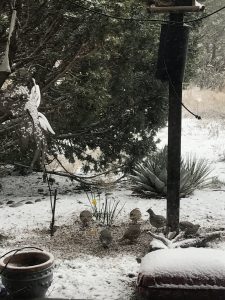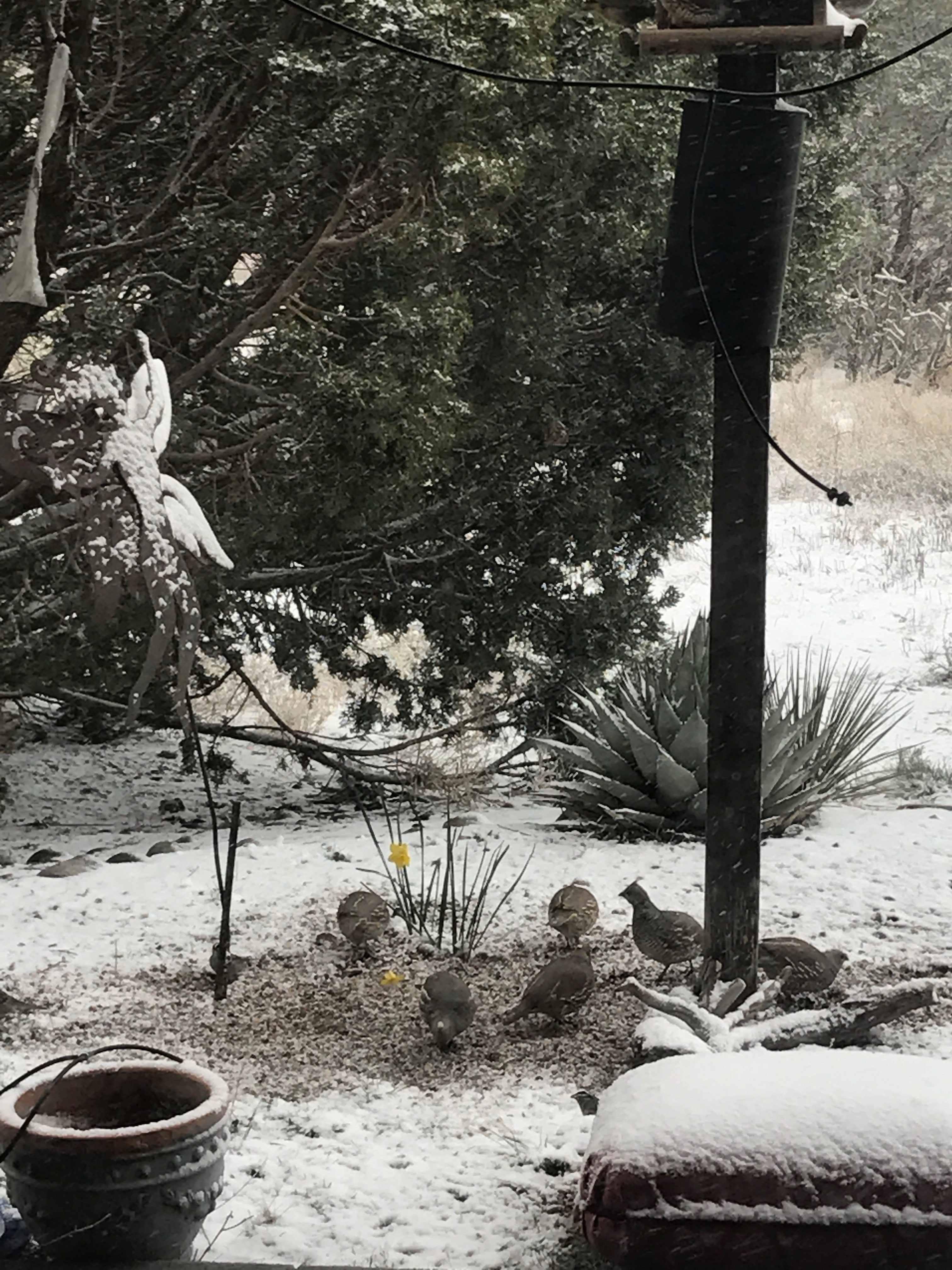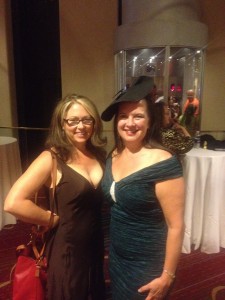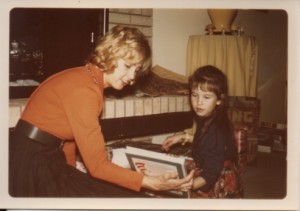 We’re having a lovely April snowstorm today, which means the quail are here in force, and looking for food. They kick up the snow and gravel with their claws, to get at the dropped seed below the feeder. I took this photo from my office window. They scratch for seed while I scratch for words. It feels very companionable.
We’re having a lovely April snowstorm today, which means the quail are here in force, and looking for food. They kick up the snow and gravel with their claws, to get at the dropped seed below the feeder. I took this photo from my office window. They scratch for seed while I scratch for words. It feels very companionable.
So, I realize my title probably brought about ten thousand suggestions to the tip of your tongue. It’s a large, fraught topic. And it’s complicated by the fact that most authors don’t really love self-promotion in the first place. We like tippy-tapping on our keyboards while the peaceful quail peck around outside. Some authors are really good at marketing, but others aren’t so much. Unfortunately this awkwardness can lead to creating the opposite effect of what they’re hoping for.
They end up driving people away instead of attracting them.
I’m going to focus on one aspect of this syndrome today: the impetuous social media insertion.
This is what happens:
- Author joins Social Media site (this can be any of them)
- Author posts intro post saying
- Hi!
- I’m new here
- I don’t know what I’m doing
- Normally I don’t have time for this sort of thing
- But it’s hit me that my book is coming out so I’m trying to do things like this!
- So, any ideas to help me?
- [Fill in likely response]
You guys have all seen this before, right? I see it all the time. I saw one like it just this morning, which is what got me brewing on this.
Let’s break down why I find this problematic.
- I’ve said this before, but apparently it bears revisiting. Social Media is social. You join one, it’s like walking into the cafeteria at a new school, carrying your lunch tray and a hopeful smile. Sure you have a right to be there, just like anyone, but that doesn’t guarantee you a seat at any of the tables. Don’t expect the room to stand up and applaud your presence. It’s gonna take a little while to make friends.
- Intro posts are never easy. Twitter likes to show us our first tweets and they’re invariably something like, “This is my first tweet. I have no idea what I’m doing.” We’re all in that same boat. It’s awkward when the teacher asks us to stand up and say where we moved from, our hobbies, and how we spent the summer vacation. (Packing and moving, then unpacking. Duh!)
- All I can suggest is, keep it to an intro post. Say hi and gracefully retreat from the field. Your next step is making friends, so let that happen naturally.
- Well, yes, but that’s fine to say as much. Honesty is good.
- Okay, authenticity is good, too. But maybe don’t dwell on this. The old hands probably already figured this out. Nobody expects you to know where your classroom is. Just ask for directions. Don’t keep apologizing.
- Whoa! So, right off the bat you’re telling me that your time is more valuable than mine. Because you’re talking to a vast room full of people who’ve decided this thing IS worth their time. Because we all understand that it’s not about how much time you have, it’s about how you choose to devote your time. WE ALL HAVE THE SAME AMOUNT OF TIME. Nobody gets extra portions of time for good behavior. We can only control how we portion out that time. By saying this, an author is essentially saying, “this thing that you do was never important enough to me before, but now it is and I’m asking you to give me your time and attention.”
- Aha! And now we know your motivation. It’s not really that this social thing we do is suddenly interesting to you. Essentially you’ve told me that you’re interested in being my friend ONLY because you think I might be helpful in selling your book. Can you imagine doing this in real life? Picture sitting down at the lunch table with nothing but your books on your tray and saying, “Hi! Normally I have better ways to spend my time than eating lunch like you people, but today I thought I’d come sit with you, be all friendly, and see if you’ll buy or help me sell my books.” I don’t think that would go over well.
- And now you want me to offer ideas for you? Well, yes, social networking is a great place to get this kind of help – I advocate for that all the time. But you don’t get to just walk up to the food co-op and help yourself, right? You have to put in the time and effort. By suggesting that people should jump to offer you ideas and support, having done nothing for them before, you come across as a special snowflake. This is especially true when you’re talking to a bunch of other authors. People who are also invested in selling their books.
- [Fill in likely response]
- My likely response in this scenario? It’s super easy to delete, ignore, scroll past, unfollow, unfriend, you name it. MUCH easier than devoting my time and energy. There will be some people, ones who are undoubtedly kinder, more patient, and more generous than I, who will offer help. But – wow – when it’s so simple to delete, forget, and move on? That’s gonna happen a lot.
The book gets forgotten before it’s found in these scenarios. Social media takes an investment of time and good will. Even then it can go wrong. But at least we can try to put our best foot forward.
And, yes – you can always come sit at my lunch table, but not if you only want to talk about your books, okay?




